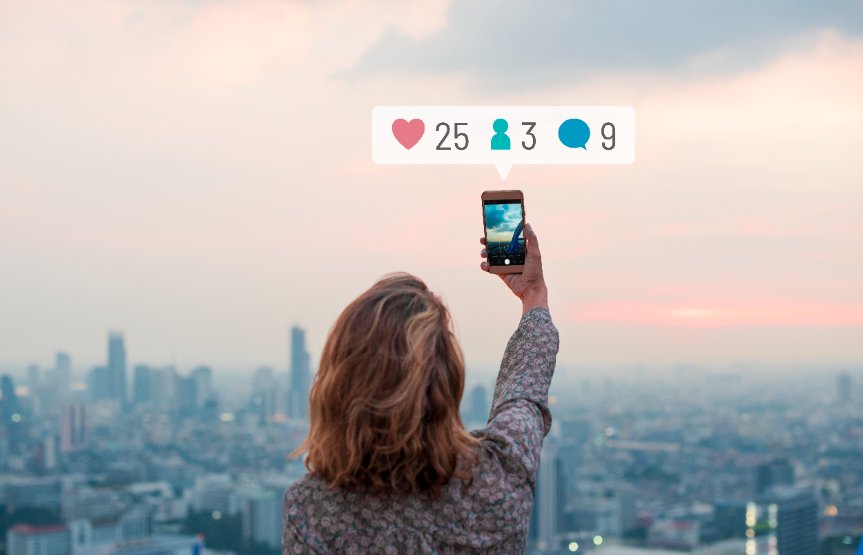
Typically, the term, “influencer” brings to mind celebrities and social media stars using their platforms to showcase and endorse consumer products to large audiences. These influencers have a dedicated social following and are considered authorities in their fields. In the B2C world, this form of social proof can yield incredible results for brands.
Given the more professional nature and complex decision-making process involved in the B2B marketplace, companies have been slower to adopt influencer marketing. That said, according to the State of B2B Influencer Marketing Report, 74 percent of marketers agree that B2B influencer marketing improves the customer and prospect experience with a brand.
Defining B2B Influencer Marketing
Influencers, by definition, inspire others to act, based on the influencers’ recognized experience, history, affiliations, position or knowledge. In most cases, they have amassed popularity among specific audiences and maintain outreach across various media to regularly connect with their audiences. Essentially, influencer marketing occurs when an individual promotes, supports or advocates for a brand in front of the brand’s audiences. Influencers can span a wide variety of activities and interests, ranging from fashion and makeup to fitness and investments.
When thinking about B2B influencer marketing, replace the term “influencer” with “expert advocate.” Industry expertise is a powerful currency in B2B sectors. Brands that connect with recognized influencers and experts can discover new audiences, propel brand awareness and showcase credibility in ways that drive sales.
How to Integrate Influencer Marketing in the B2B Space

B2B influencer marketing looks a bit different from its B2C counterpart and mastering it is no easy task. With these strategic tips in mind, B2B organizations are one step closer to nailing their next influencer campaign.
- It’s not just about brand promotion. Today’s buyers, especially in the B2B space, are savvy individuals valuing honest brands and seeking real solutions to their problems. They’ll see right through shallow promotional stunts, even if the influencer or brand is familiar. Just like any B2B marketing tactic, the main goal should be to provide something of value to target audiences. Save the direct sales pitches for the sales team. Instead, offer relevant insights and expertise that address common challenges to position your company as a leader in your field. When an influencer with relevant audiences amplifies a message or offer that carries the kind of value that solves customer problems, visibility and credibility increase significantly.
- Discover relevant influencers already in your company or network. Rather than cold outreach to big influencers with major followings, start inside your own network and build outward. Influential brand advocates may be closer than you think. Internal advocates are vital to influencer marketing. Whether satisfied entry-level employees or C-suite leaders, it’s okay for individuals within your organization to promote the company they work for as long as it is balanced with transparency and relevant insights. That said, stakeholders and other partners are vital connections to integrate into influencer marketing tactics. They can speak directly to what it is like to work with your organization, in their own words.
- Don’t limit influencer marketing to social media. Yes, social media is still a powerful tool that B2B influencers know how to take advantage of. Consider that 61 million LinkedIn users are senior-level influencers and 40 million are in decision-making positions. Unlike the B2C market, where social media might be one of the only ways influencers can get in touch with their audiences, B2B influencers can leverage countless other mediums that audiences frequent. Take advantage of podcasts, guest blogs, interviews, testimonials or product reviews. Also, jointly developed content including articles, white papers and eBooks promotes thought leadership with influencers and the audiences they reach. Bolster credibility by distributing content through established channels or publications, further amplifying messaging.
- Expect a greater time commitment. The purchase cycle for B2B products and services is longer and more complex than B2C. B2B influencer marketing follows the same elongated process. With complicated budgets and a series of decision-makers, B2B purchases often need clear ROI and buy-in from multiple stakeholders before a purchase can be made. For influencer marketing to make an impact, it’s vital to allow the time commitment to match the decision-making process. According to Jay Baer of Convince & Convert, “You shouldn’t expect results from a B2B influencer marketing program for at least six months, and you should seek to work with B2B influencers one year at a time. This differs a lot from B2C influencer programs, which can be as short as 30 days.” Ensure influencers are right for the long-term commitment and connect with target audiences in more ways than one.
Building Blocks to Establish Buyer Trust

Much like the way our friends and colleagues impact our day-to-day decisions, when influencers genuinely believe in products or services, their audiences will listen too. When we trust and respect someone, we take stock of their experiences and opinions. In this context, influencer marketing is a great way to harness the trust, understanding and empathy that already exists between an influencer and their audiences, empowering brands with a solid foundation to build strong customer relationships.
